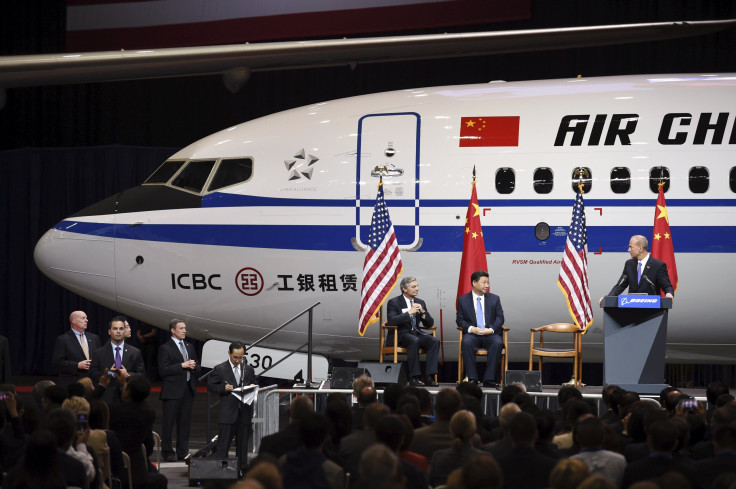China Visa Policy Changes Impact: Boeing Sees Big Uptick In International Travel Because Of China, Despite Economic Slowdown

Changes in Chinese visa policies and in the country's economy over the last few years have made a noticeable difference for aviation company Boeing, which has struggled at times in recent years with several of its key programs, such as the rollout of the massive Dreamliner jet. Even with the slump in Chinese markets that rippled through the rest of the global economy, more Chinese are traveling internationally and more foreigners are flocking to China -- and Boeing is reaping the benefits, Randy Tinseth, the vice president of marketing at Boeing, said Thursday in an interview with Bloomberg Television.
“We have definitely seen a slowdown in economic growth, but we are also seeing a restructuring of the economy, one that’s based more on retail sales and services,” Tinseth said. “This seems to help our industry, which is around travel,” he said. In September, Boeing announced plans to open its first plant in China. The company has predicted that in the coming decades, China will become the largest market in the world for travel and aircraft, surpassing the U.S.
In 2013, China released new rules for visas into the country that added several options to allow foreigners into the country or to extend their stays there. In November 2014, it announced a new joint program with the U.S. that would allow American and Chinese citizens to visit the other's countries multiple times for a decade, rather than the one-year stint previously granted by a visa. The change aimed to increase trade and business between the two countries, and both travel companies and airline companies hailed the new rules.
"As a global company with an important China route network, we support agreements that simplify travel and remove obstacles for our customers," United Airlines Chief Executive Jeff Smisek said at the time. "China is a fast-growing economy and this agreement will open up travel that will drive economic benefits in the U.S.," he said.
Amid this growth in demand, Boeing's new plant in China will finish the production of some of its 737 airplanes for sale to Chinese companies. The new facility would allow for ramped-up production at Boeing's Washington plant in the U.S., from the current 42 a month to 52 per month by 2018.
“It’s going to be a huge marketplace,” Tinseth said of China.
In the first half of 2015, the Chinese made 61.9 million trips out of China, a 13 percent increase over the previous year, and in 2014, Chinese tourists abroad spent $164.8 billion, in destinations topped by Japan, the United States, Taiwan, New Zealand and Thailand. In fact, they contribute more to the global tourism sector than any other nationality.
The recent market downturn, which started when Chinese stock markets began declining in June before dropping a precipitous 8.7 percent one day in August, could alter but not fully quell the tide of travelers, analysts have said.
© Copyright IBTimes 2024. All rights reserved.




















